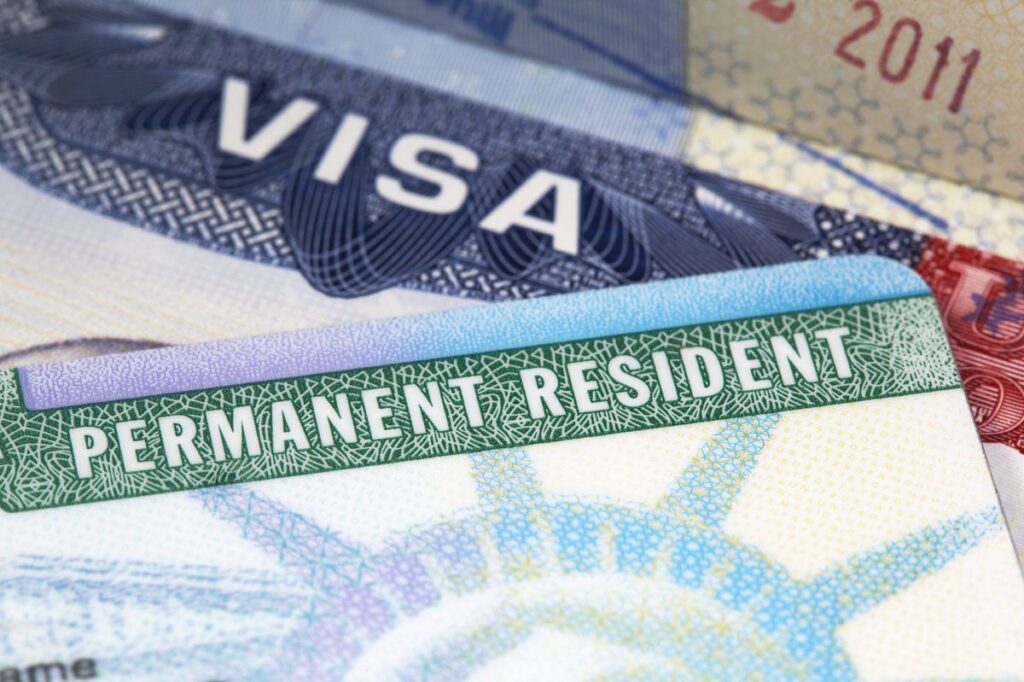Relocating from the bustling cities of the United States to the historic towns and modern metropolises of Germany is a journey filled with both excitement and challenges.
As globalization continues to make our world smaller, more Americans are seeking opportunities beyond their borders, and Germany, with its rich history, robust economy, and vibrant culture, has become a top destination.
This guide aims to provide American expatriates with a comprehensive understanding of the German way of life, from the intricacies of obtaining a visa to the nuances of daily living.
Why Move to Germany?
Germany, the heart of Europe, offers a unique blend of old-world charm and cutting-edge innovation. Its economic stability is evident in its position as the largest economy in Europe and the fourth-largest worldwide.
This economic prowess translates into numerous job opportunities in fields ranging from technology and engineering to arts and humanities. Moreover, the high quality of life in Germany is reflected in its excellent public services, world-class healthcare, and efficient public transportation system.
Beyond the tangible benefits, living in Germany offers a chance to immerse oneself in a culture steeped in history, art, and traditions.
Whether it’s the festive atmosphere of Oktoberfest, the architectural marvels of cities like Berlin and Munich, or the serene landscapes of the Bavarian Alps, Germany promises a rich and fulfilling experience for those willing to embrace its culture and values.
Visa and Residency

Source: offshorecitizen.net
For many Americans, the dream of living in Germany begins with navigating the maze of visa and residency requirements. Germany offers a variety of visa options tailored to different needs, from student and work visas to visas for entrepreneurs and freelancers.
The most common visa for US citizens looking to work in Germany is the Blue Card, designed for highly skilled non-EU professionals. To obtain this, one must have a recognized university degree and a job offer with a certain minimum salary.
The process of obtaining a visa can be daunting, especially for those unfamiliar with German bureaucracy. It often requires a plethora of documents, including proof of health insurance, financial stability, and, in some cases, a clean criminal record.
Once in Germany, the next step is to register at the local Residents’ Registration Office, a mandatory procedure for anyone planning to stay longer than three months.
This registration not only legalizes one’s stay but also serves as a prerequisite for many other processes, such as opening a bank account.
Finding a Place to Live
Securing a comfortable abode is a top priority for any expatriate. In Germany, the housing market can be competitive, especially in popular cities like Berlin, Munich, and Frankfurt. Unlike the US, where many people opt to buy homes, renting is more common in Germany.
The process begins with understanding the local rental market, which can be quite different from what Americans are used to. For instance, it’s not uncommon to find rental apartments that are “unfurnished” by American standards, meaning they might lack basic amenities like a kitchen or light fixtures.
When searching for accommodation, websites like ImmobilienScout24 and WG-Gesucht are invaluable resources. Once a suitable place is found, it’s essential to familiarize oneself with the rental contract, known as the “Mietvertrag.”
These contracts can be long-term, often spanning several years, and may include clauses unfamiliar to Americans, such as the “Kündigungsfrist” or notice period. It’s always advisable to have a local or someone fluent in German review the contract to ensure a clear understanding of all terms and conditions.
Healthcare System

Source: goodrx.com
Germany’s healthcare system is often lauded for its efficiency, comprehensive coverage, and accessibility.
Unlike the predominantly private healthcare system in the US, Germany operates on a dual system of public statutory health insurance (Gesetzliche Krankenversicherung or GKV) and private health insurance (Private Krankenversicherung or PKV). Over 85% of the population is covered under the GKV, which is funded through joint contributions by employers and employees.
The system ensures that everyone, regardless of their income, has access to medical care.
For Americans moving to Germany, understanding the nuances of this system is crucial. Registration with a health insurance provider is mandatory, and often a prerequisite for obtaining a residence permit.
Those employed in Germany will typically be automatically enrolled in the GKV unless their income exceeds a certain threshold, in which case they can opt for private insurance.
PKV often offers more personalized plans and shorter waiting times but can be more expensive, especially for older individuals.
Education System
The German education system, known for its rigor and emphasis on vocational training, stands in contrast to the American approach.
The system is divided into several stages, starting with kindergarten, followed by primary school (Grundschule), and then secondary school, which is further divided into three main types: Gymnasium, Realschule, and Hauptschule.
The Gymnasium culminates in the Abitur, a qualification required for university admission.
For American families relocating to Germany, the education system can present both opportunities and challenges. International schools, available in many major cities, offer curricula in English and can be a smooth transition for American students.
However, for those looking to immerse their children in German culture, local schools provide an authentic experience. It’s essential to understand the structure and expectations of the
German system, especially given the early tracking of students based on academic ability. Additionally, Germany boasts numerous world-class universities, many of which offer programs in English, making it an attractive destination for higher education.
Cultural Differences

Source: germany.travel
Embracing a new culture is both a thrilling adventure and a learning curve and Germany, with its deep-rooted traditions and modern sensibilities, offers a unique cultural tapestry for Americans to explore. One of the first things expatriates might notice is the German value of punctuality.
Whether it’s a business meeting or a casual coffee date, being on time is seen as a sign of respect. This precision often extends to other facets of life, from the meticulousness in craftsmanship to the punctual arrival of buses and trains.
Another cultural nuance is the German approach to privacy and directness. Small talk, a common social lubricant in the US, is less prevalent in Germany. Conversations tend to be straightforward, with people expressing their opinions candidly.
This directness is not a sign of rudeness but rather a cultural preference for clarity and honesty. Additionally, Germans have a strong sense of “Ordnung” (order) and rules, evident in everything from recycling protocols to pedestrian behavior at crosswalks.
While these differences might seem daunting at first, they are also an opportunity for enriching personal growth. Embracing local customs, from enjoying the “Kaffee und Kuchen” (coffee and cake) tradition in the afternoons to participating in local festivals, can help Americans integrate and build lasting connections.
Tax Implications
Navigating the financial landscape of a new country can be complex, and Germany’s tax system, with its myriad regulations and stipulations, is no exception.
For American expatriates, understanding their tax obligations is paramount to avoid legal complications and potential financial pitfalls. Germany has a progressive tax system, with rates ranging from 0% to 45% based on income levels.
One of the primary concerns for Americans living abroad is the requirement to file taxes in both Germany and the US. The US is one of the few countries that taxes its citizens on worldwide income, regardless of residency.
However, provisions like the Foreign Earned Income Exclusion (FEIE) and the US-Germany tax treaty aim to prevent double taxation, allowing expatriates to claim credits or exclusions on their US returns for taxes paid in Germany.
It’s also essential to be aware of other taxes, such as the solidarity surcharge, church tax, and value-added tax (VAT). Given the intricacies of the tax system, many expatriates opt to consult with tax professionals familiar with both US and German regulations. Engaging an international tax accountant can be particularly beneficial to ensure compliance and optimize one’s financial situation.

Source: expatica.com
Conclusion
The journey of relocating from the US to Germany is a multifaceted experience, blending the thrill of new adventures with the intricacies of adapting to a different cultural and administrative landscape.
From understanding the nuances of the German healthcare and education systems to navigating the complexities of tax obligations, the path is filled with challenges. However, these challenges are also opportunities for growth, learning, and personal enrichment.
Germany, with its rich history, vibrant culture, and robust economy, offers a unique setting for Americans to expand their horizons. The key to a successful transition lies in preparation, understanding, and a willingness to embrace the new while cherishing memories of the old.
As with any significant life change, there will be moments of nostalgia, uncertainty, and doubt. Yet, the rewards of immersing oneself in the German way of life, building new relationships, and exploring the vast cultural tapestry of the country far outweigh the initial hurdles.
In conclusion, moving to Germany is not just a change in geographical location; it’s a transformative journey that promises a wealth of experiences, memories, and insights. With the right guidance, an open mind, and the assistance of websites like TaxesForExpats, the German dream can be a fulfilling and enriching chapter in the life of any American expatriate.





















